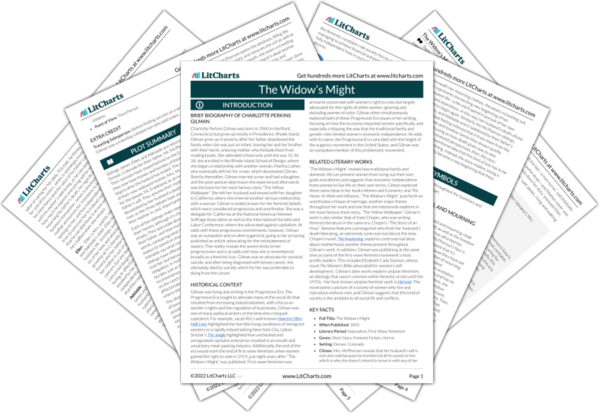Societal Expectations and Female Independence
“The Widow’s Might” is a story about how 20th-century societal expectations surrounding caretaking and domesticity unfortunately tended to curb female independence and freedom. Siblings James, Ellen, and Adelaide expect that their recently widowed mother, Mrs. McPherson, will be weak and devastated in the wake of her husband, Mr. McPherson’s, death. Although none of them want to take her in, they assume that she’s incapable of living on her own and needs…
read analysis of Societal Expectations and Female IndependenceLove vs. Duty
“A Widow’s Might” complicates the assumption that families are bound together by love. In the wake of their patriarch’s death, the loveless McPherson family begins to crumble. The three McPherson siblings, James, Ellen, and Adelaide, openly acknowledge that they didn’t really love their late father, Mr. McPherson, nor did he ever truly love them. They remember their family as affectionless, and they all hated living on the family’s ranch. They are…
read analysis of Love vs. DutyDeath, Loss, and New Beginnings
Rather than death amounting to no more than a tragic sense of loss, “The Widow’s Might” suggests that the death of a loved one can actually give people new kind of freedom. Mrs. McPherson best illustrates this idea. In stark contrast to the sadness and devastation that her children expect will have consumed her in the wake of her husband’s death, Mrs. McPherson is joyful and excited to live an independent life now that she…
read analysis of Death, Loss, and New Beginnings







